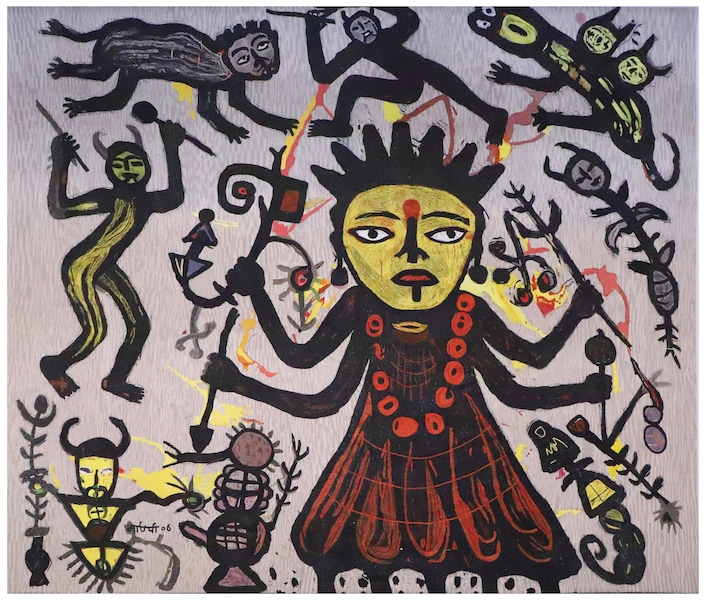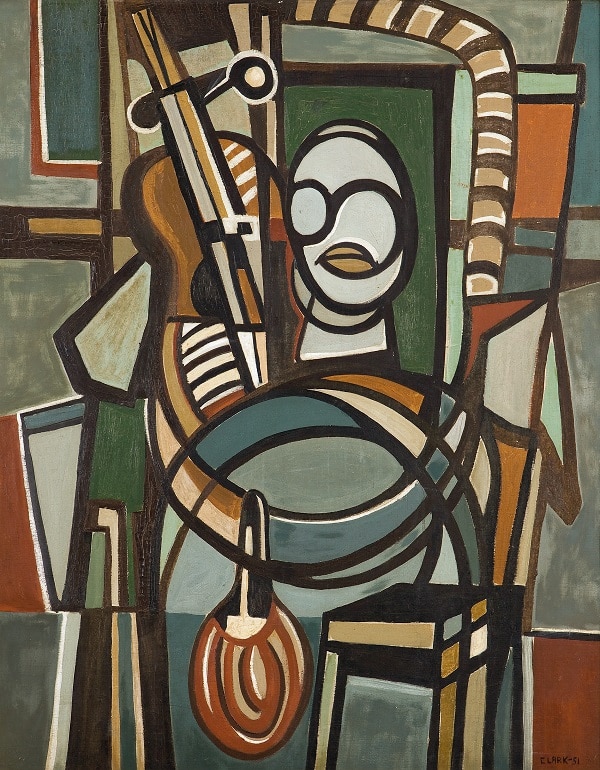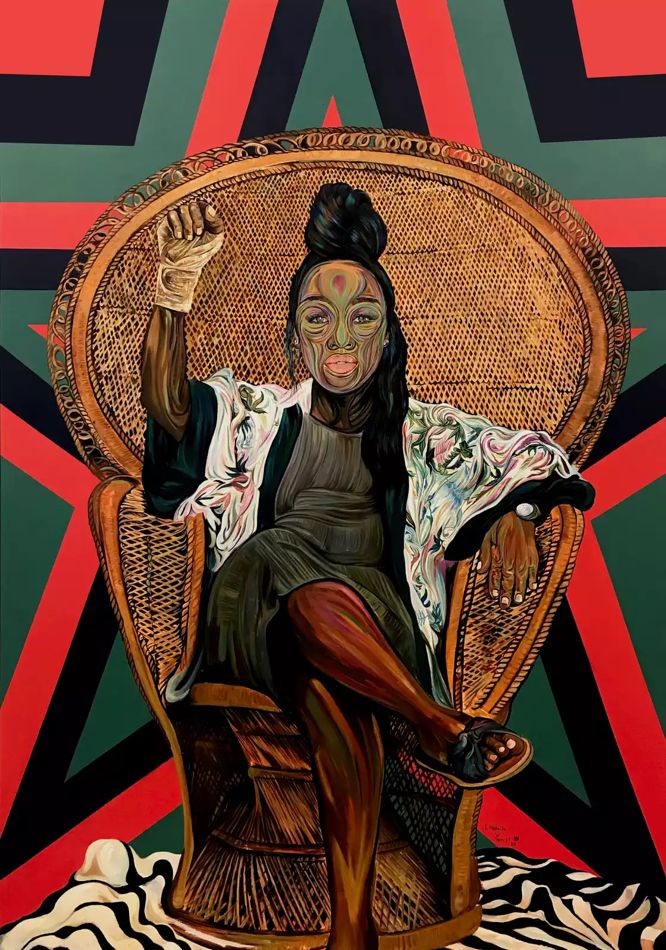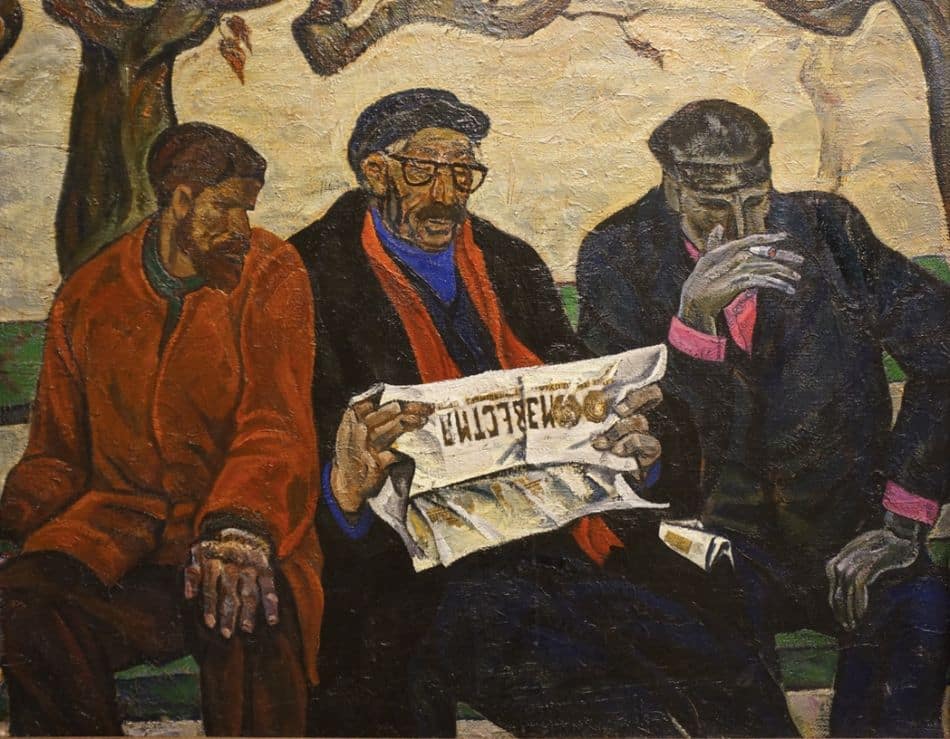Dear friends,
Greetings from the desk of Tricontinental: Institute for Social Research.
In 2003, high officials from Brazil, India, and South Africa met in Mexico to discuss their mutual interests in the trade of pharmaceutical drugs. India was and is one of the world’s largest producers of various drugs, including those used to treat HIV-AIDS; Brazil and South Africa were both in need of affordable drugs for patients infected with HIV as well as a host of other treatable ailments. But these three countries were barred from easily trading with each other because of strict intellectual property laws established by the World Trade Organisation. Just a few months prior to their meeting, the three countries formed a grouping, known as IBSA, to discuss and clarify intellectual property and trade issues, but also to confront countries of the Global North for their asymmetrical demand that the poorer nations end their agricultural subsidies. The notion of South-South cooperation framed these discussions.
Interest in South-South cooperation dates back to the 1940s, when the United Nations Economic and Social Council established its first technical aid programme to assist trade between the new post-colonial states in Africa, Asia, and Latin America. Six decades later, just as IBSA was formed, this spirit was commemorated by the United Nations Day for South-South Cooperation on 19 December 2004. At this time, the UN also created the Special Unit for South-South Cooperation (ten years later, in 2013, this institution was renamed as the United Nations Office for South-South Cooperation), which built upon the 1988 agreement on the Global System of Trade Preferences Among Developing Countries. As of 2023, this pact includes 42 member states from Africa, Asia, and Latin America, that are collectively home to four billion people and have a combined market of $16 trillion (roughly 20% of global merchandise imports). It is important to register that this longstanding agenda to increase trade between Southern countries forms the pre-history of the BRICS, set up in 2009 and presently made up of Brazil, Russia, India, China, and South Africa.

Madhvi Parekh and Karishma Swali (India), Kali I, 2021—22.
The entire BRICS project is centred around the question of whether countries at the nether end of the neo-colonial system can break out of that system through mutual trade and cooperation, or whether the larger countries (including those in the BRICS) will inevitably enjoy asymmetries of power and scale against smaller countries and therefore reproduce inequalities rather than transcend them. Our latest dossier, on Marxist dependency theory, calls into question any capitalist project in the South that believes it can somehow break free from the neo-colonial system by importing debt and exporting cheap commodities. Despite the limitations of the BRICS project, it is clear that the increase in South-South trade and the development of Southern institutions (for development financing, for instance) challenges the neo-colonial system even if it does not immediately transcend it. At Tricontinental: Institute for Social Research, we have been closely following the developments and contradictions of the BRICS project from its inception and continue to do so.
Later this month, the fifteenth BRICS summit will take place in Johannesburg, South Africa, from 22—24 August. This meeting comes as two of the group’s members, Russia and China, are facing a New Cold War with the United States and its allies, while the other members face immense pressure to be drawn into this conflict. Below, you will find briefing no. 9, published in collaboration with No Cold War, which offers a brief but necessary primer of the upcoming BRICS summit. You can read the briefing below.

The upcoming fifteenth BRICS Summit (22—24 August) in Johannesburg, South Africa, has the potential to make history. The heads of state of Brazil, Russia, India, China, and South Africa will gather for their first face-to-face meeting since the 2019 summit in Brasilia, Brazil. The meeting will take place eighteen months since the beginning of military conflict in Ukraine, which has not only raised tensions between the U.S.-led Western powers and Russia to a level unseen since the Cold War but also sharpened differences between the Global North and South.
There are growing cracks in the unipolar international order imposed by Washington and Brussels on the rest of the world through the North Atlantic Treaty Organisation (NATO), the international financial system, the control of information flows (in both traditional and social media networks), and the indiscriminate use of unilateral sanctions against an increasing number of countries. As United Nations Secretary-General António Guterres recently put it, ‘the post-Cold War period is over. A transition is under way to a new global order’.
In this global context, three of the most important debates to monitor at the Johannesburg summit are: (1) the possible expansion of BRICS membership, (2) the expansion of the membership of its New Development Bank (NDB), and (3) the NDB’s role in creating alternatives to the use of the U.S. dollar. According to Anil Sooklal, South Africa’s ambassador to BRICS, twenty-two countries have formally applied to join the group (including Saudi Arabia, Argentina, Algeria, Mexico, and Indonesia) and a further two dozen have expressed interest. Even with numerous challenges to overcome, the BRICS are now seen as a major driving force of the world economy and of economic developments across the Global South in particular.

Lygia Clark (Brazil), O Violoncelista (‘The Violoncellist’), 1951.
The BRICS Today
In the middle of the last decade, the BRICS experienced a number of problems. With the election of Prime Minister Narendra Modi in India (2014) and the coup against President Dilma Rousseff in Brazil (2016), two of the group’s member countries became headed by right-wing governments more favourable to Washington Both India and Brazil retreated in their participation in the group. The de facto absence of Brazil, which from the outset had been one of the key driving forces behind the BRICS, represented a significant loss for the consolidation of the group. These developments undermined and hampered the progress of the NDB and the Contingent Reserve Arrangement (CRA), established in 2015—which represented the greatest institutional achievement of the BRICS to date. Although the NDB has made some progress it has fallen short of its original objectives. To date, the bank has approved some $32.8 billion in financing (in fact, less than that has been issued), while the CRA—which has $100 billion in funds to assist countries that have a shortage of U.S. dollars in their international reserves and are facing short-term balance of payments or liquidity pressures—has never been activated.
However, developments in recent years have reinvigorated the BRICS project. The decisions of Moscow and Beijing to respond to escalations of aggression in the New Cold War by Washington and Brussels; the return of Luiz Inácio Lula da Silva to the presidency of Brazil in 2022 and the consequent appointment of Dilma Rousseff to the presidency of the NDB; and the relative estrangement, to varying degrees, of India and South Africa from the Western powers have resulted in a ‘perfect storm’ that seems to have rebuilt a sense of political unity in the BRICS (despite unresolved tensions between India and China). Added to this is the growing weight of the BRICS in the global economy and strengthened economic interaction between its members. In 2020, the global share of the BRICS’s Gross Domestic Product (GDP) in purchasing power parity terms—31.5 percent—overtook that of the Group of Seven (G7)—30.7 percent—and this gap is expected to grow. Bilateral trade among BRICS countries has also grown robustly: Brazil and China are breaking records every year, reaching $150 billion in 2022; Russian exports to India tripled from April to December 2022, year-on-year, expanding to $32.8 billion; while trade between China and Russia jumped from $147 billion in 2021 to $190 billion in 2022, an increase of nearly 30 percent.

Ayanda Mabulu (South Africa), Power, 2020.
What’s at Stake in Johannesburg?
Faced with this dynamic international situation and growing requests for expansion, the BRICS face a number of important questions:
In addition to providing concrete responses to interested applicants, expansion has the potential to increase the political and economic weight of the BRICS and, eventually, strengthen other regional platforms that its members belong to. But expansion also requires having to decide on the specific form that membership should take and may increase the complexity of consensus building, with a risk of slowing the progress of decision making and initiatives. How should these matters be dealt with?
How can the NDB’s financing capacity be increased, as well as its coordination with other development banks of the Global South and other multilateral banks? And, above all, how can the NDB, in partnership with the BRICS’ network of think tanks, promote the formulation of a new development policy for the Global South?
Since the BRICS member countries have solid international reserves (with South Africa having a little less), it’s unlikely that they will need to use the CRA, instead, this fund could provide countries in need with an alternative to the political blackmail of the International Monetary Fund, which requires developing countries to enact devastating austerity measures in exchange for loans.
BRICS is reported to be discussing the creation of a reserve currency that would enable trade and investment without the use of the U.S. dollar. If this were established it could be one more step in efforts to create alternatives to the dollar, but questions remain. How could the stability of such a reserve currency be ensured? How could it be articulated with newly created trade mechanisms which do not use the dollar, such as bilateral China-Russia, China-Brazil, Russia-India, and other arrangements?
How can cooperation and technology transfer support the re-industrialisation of countries like Brazil and South Africa, especially in strategic sectors such as biotech, information technology, artificial intelligence, and renewable energies, while also fighting poverty and inequality, and achieving other basic demands of the peoples of the South?
Leaders representing 71 countries of the Global South have been invited to attend the meeting in Johannesburg. Xi, Putin, Lula, Modi, Ramaphosa, and Dilma have a lot of work to do, to answer these questions and make progress on the urgent matters in global development.
Our institute continues to track these developments, neither with the belief that the BRICS project offers global salvation, nor with the cynicism that dismisses it as nothing new. History is moved, not by purity, but by the world’s contradictions.

Peter Gorban (USSR), Field Camp. The Izvestiya., 1960.
As these major countries of the South meet in Johannesburg, they will confront the vast inequities in South Africa. These fissures are the grist for the poems of Vonani Bila, whose voice rises out of Shirley Village (Limpopo) and reminds us of the long walk ahead, through the BRICS project and beyond:
When the sun recedes
into the Soutpansberg,
Giyani Block puts on a
black adder coat;
a mirror of death and despair.Doctors and nurses stand on their feet.
They shall not rest when the workers’ strike
ignites its furious flame.
They’re on tiptoe, looking up,
wrestling the faceless, tailless monster.
Warmly,
Vijay

